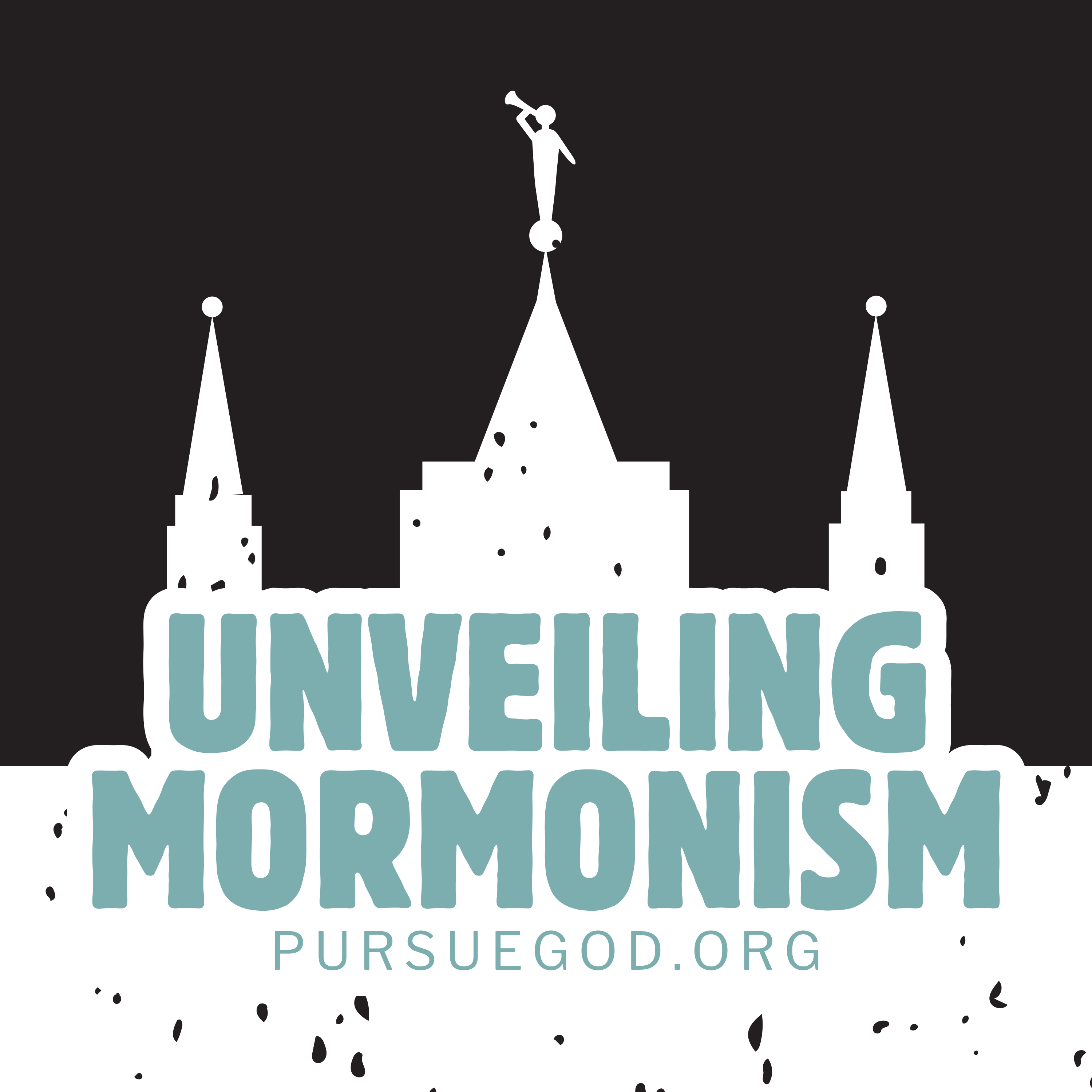Rabbit Holes After Mormonism
Leaving the Church of Jesus Christ of Latter-day Saints (LDS) is a life-altering decision. For many, it’s a painful process that leads to more questions than answers. Once the foundation of Mormonism crumbles, ex-members must decide where to go next. Some turn to biblical Christianity and find truth in the gospel of Jesus Christ, while others venture into different ideological or religious rabbit holes. The search for truth can take many forms, but not all paths lead to freedom and fulfillment in Christ.
--
The Unveiling Mormonism podcast pulls back the curtain on Mormon history, culture and doctrine. Join us for new episodes every Monday.
Find resources to talk about these episodes at pursueGOD.org/mormonism.
Help others go "full circle" as a follower of Jesus through our 12-week Pursuit series.
Click here to learn more about how to use these resources at home, with a small group, or in a one-on-one discipleship relationship.
Got questions or want to leave a note? Email us at podcast@pursueGOD.org.
--
1. Deconstructing Faith Altogether
One of the most common outcomes for ex-Mormons is the complete deconstruction of faith. After realizing that the LDS Church is not true, many begin to doubt all religious claims, including Christianity. The logical conclusion for some is agnosticism or atheism, believing that if Mormonism was a lie, perhaps all religions are man-made.
This path is often fueled by bitterness or exhaustion from years of religious performance. Former Mormons may feel deceived and unwilling to trust any organized belief system again. Some even become vocal critics of Christianity, equating the Bible with the Book of Mormon and assuming both are unreliable. However, this approach overlooks key differences—unlike Mormonism, biblical Christianity is rooted in historical, archaeological, and theological truth (2 Timothy 3:16-17).
2. Embracing a Godless Lifestyle
For some, leaving Mormonism becomes an excuse to indulge in behaviors previously forbidden by the LDS Church. With no more Word of Wisdom restrictions, some turn to excessive drinking, drug use, or promiscuity as a way to reclaim their "freedom." The strict moral code of Mormonism can feel suffocating, and once those restraints are gone, the pendulum swings hard in the opposite direction.
But this new form of “freedom” often leads to emptiness. Without a solid moral foundation, people may experience broken relationships, addiction, or deep dissatisfaction. The Bible warns that “there is a path before each person that seems right, but it ends in death” (Proverbs 14:12, NLT). True freedom is not found in abandoning all moral boundaries but in Christ, who offers abundant life (John 10:10).
3. Turning to New Age Spirituality
Some ex-Mormons don’t abandon spirituality but instead embrace mysticism, energy healing, or Eastern religious ideas. The structured theology of Mormonism can leave a void that alternative spiritualities attempt to fill. Many become drawn to meditation, astrology, or the idea of a “higher consciousness,” believing that they can still connect with the divine—just without the structure of Christianity.
This path can be appealing because it rejects religious authority while still offering a sense of spirituality. However, it is a dangerous deception. The Bible warns against spiritual practices that lead people away from the true God (Deuteronomy 18:10-12). Instead of looking inward or seeking mystical experiences, former Mormons need to seek the real Jesus, who offers salvation, not vague spiritualism (John 14:6).
4. Exploring Eastern Orthodoxy or Catholicism
Many ex-Mormons who still desire structured faith are drawn to Eastern Orthodoxy or Roman Catholicism because of their claims to apostolic succession. After realizing that Mormon priesthood authority is unfounded, some seek a church that claims unbroken authority from the apostles. The idea of an ancient, traditional church is appealing after leaving a modern, man-made religion like Mormonism.
While these traditions have deep historical roots, they also come with theological baggage. Many former Mormons find comfort in ritual and tradition but fail to examine whether these traditions align with Scripture. The Bible teaches that salvation is by grace through faith in Christ alone—not through sacraments or church authority (Ephesians 2:8-9). While church history is important, authority must always be tested by the Word of God (Acts 17:11).
Finding Biblical Christianity
The best path after Mormonism is to examine who Jesus really is and what the Bible truly teaches. Many former Mormons initially resist Christianity because they assume it’s just another version of organized religion. However, biblical Christianity stands apart from Mormonism in fundamental ways.
Unlike Mormonism, the gospel is not about earning God’s favor through works, temple ordinances, or church membership. Jesus offers salvation as a free gift to those who trust in Him alone (Romans 10:9-10). The Bible is reliable, historically supported, and has not been changed to fit human agendas (Isaiah 40:8). True faith is not about an institution—it’s about a personal relationship with Jesus Christ.
Conclusion
Leaving Mormonism is a journey with many possible destinations. Some ex-Mormons deconstruct faith entirely, others fall into hedonism or New Age beliefs, and still others explore apostolic traditions. But the ultimate question remains: What is truth?
Jesus made it clear when He said, “I am the way, the truth, and the life. No one can come to the Father except through me” (John 14:6, NLT). Former Mormons must wrestle with this reality. Instead of following another rabbit hole, the best path is to examine Jesus Christ and the Bible, which provide a firm foundation for faith, hope, and eternal life.



